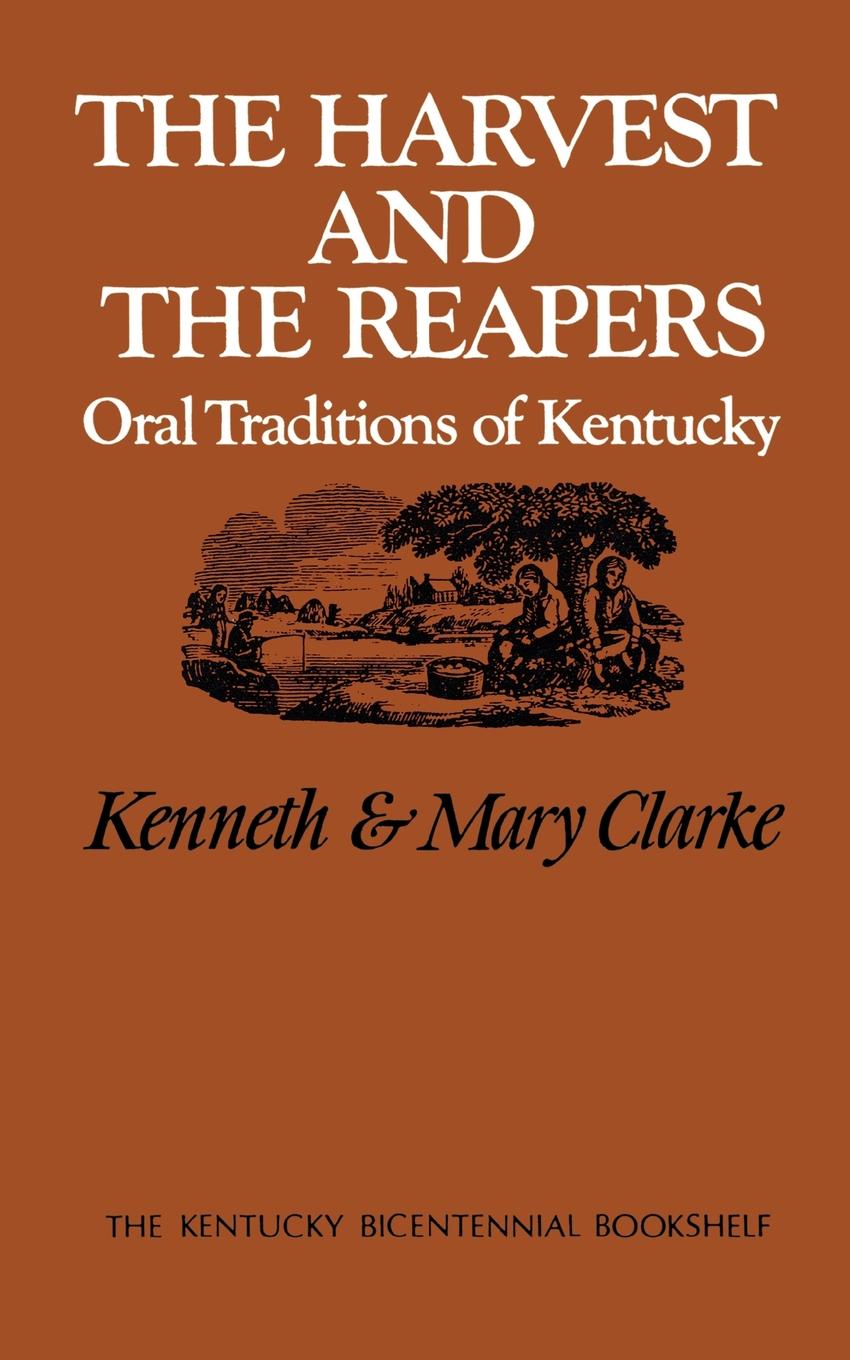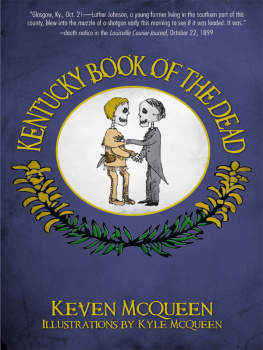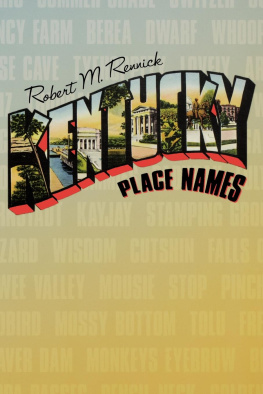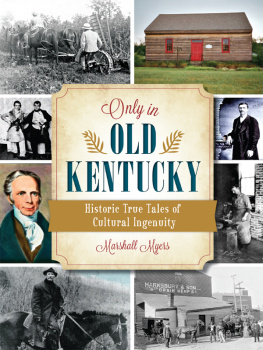
Published Sources
Anderson, John Q. With the Bark On: Popular Humor of the Old South. Nashville, Tenn.: Vanderbilt University Press, 1967.
Arnow, Harriette Simpson. Mountain Path. New York: Convici Friede Publishers, 1936.
Campbell, Marie. Tales from the Cloud Walking Country. Bloomington: Indiana University Press, 1958.
Clark, Thomas D. The Kentucky. Revised edition. Lexington, Ky.: Henry Clay Press, 1969.
Clarke, Kenneth. Uncle Bud Long: Birth of a Kentucky Folk Legend. Lexington: University Press of Kentucky, 1973.
Clarke, Mary Washington. Jesse Stuarts Kentucky. New York: McGraw-Hill Book Co., 1968.
Cohen, Anne B. Poor Pearl, Poor Girl. Austin: University of Texas Press, 1973.
Coleman, J. Winston, Jr. The Beauchamp-Sharp Tragedy. Frankfort, Ky.: Roberts Printing Co., 1950.
Combs, Josiah H. All Thats Kentucky: An Anthology. Louisville: John P. Morton and Co., 1915.
Folk-Songs of the Southern United States. Edited by D. K. Wilgus. Austin: University of Texas Press, 1967.
Crabb, Alfred Leland. Peace at Bowling Green. Indianapolis: Bobbs-Merrill Co., 1955.
Dorson, Richard M. American Negro Folktales. New York: Fawcett World Library, 1967.
Emrich, Duncan. Folklore on the American Land. Boston: Little, Brown and Co., 1972.
Field, Thomas P. A Guide to Kentucky Place Names. Kentucky Geological Survey, Series X. Lexington: University of Kentucky, 1961.
Friedman, Albert B. The Ballad Revival. Chicago: University of Chicago Press, 1961.
Furman, Lucy. The Quare Women. Boston: Atlantic Monthly Press, 1923.
Gordon, Caroline. Old Red and Other Stories. New York: Cooper Square Publishers, 1971.
Greenway, John. American Folksongs of Protest. Philadelphia: University of Pennsylvania Press, 1953.
Guthrie, Charles S. Riddles from the Cumberland Valley. Bowling Green, Ky.: Kentucky Folklore Society, 1973.
Karpeles, Maud. Cecil Sharp: His Life and Work. Chicago: University of Chicago Press, 1967.
Montell, William Lynwood. The Saga of Coe Ridge. Knoxville: University of Tennessee Press, 1970.
Moore, Arthur K. The Frontier Mind: A Cultural Analysis of the Kentucky Frontiersman. Lexington: University of Kentucky Press, 1957.
Niles, John Jacob. The Ballad Book of John Jacob Niles. Boston: Houghton Mifflin Co., 1961.
Ritchie, Jean. Singing Family of the Cumberlands. New York: Oxford University Press, 1955.
Roberts, Leonard. Old Greasybeard: Tales from the Cumberland Gap. Detroit: Folklore Associates, 1969.
South from Hell-fer-Sartin: Kentucky Mountain Folktales. Lexington: University of Kentucky Press, 1955.
Rourke, Constance M. American Humor: A Study of the National Character. New York: Harcourt, Brace and Co., 1931.
Sharp, Cecil J. English Folk-Songs from the Southern Appalachians. Edited by Maud Karpeles, 2 vols. London: Oxford University Press, 1932.
Still, James. Way Down Yonder on Troublesome Creek: Appalachian Riddles & Rusties. New York: G. P. Putnams Sons, 1974.
Stuart, Jesse. Taps for Private Tussie. New York: E. P. Dutton and Co., 1943.
The Good Spirit of Laurel Ridge. New York: McGraw-Hill Book Co., 1953.
Thomas, Daniel, and Thomas, Lucy. Kentucky Superstitions. Princeton, N.J.: Princeton University Press, 1920.
Thomas, Jean. Ballad Makin in the Mountains of Kentucky. New York: Henry Holt Co., 1939.
Thompson, Lawrence S. Kentucky Tradition. Hamden, Conn.: Shoe String Press, 1956.
Townsend, William H. Hundred Proof: Salt River Sketches and Memoirs of the Bluegrass. Lexington: University of Kentucky Press, 1964.
Warren, Robert Penn. World Enough and Time. New York: Random House, 1950.
Wells, Evelyn K. The Ballad Tree. New York: Ronald Press Co., 1950.
Wilgus, D. K. Anglo-American Folksong Scholarship since 1898. New Brunswick, N.J.: Rutgers University Press, 1959.
Wilson, Gordon, Sr. Folklore of the Mammoth Cave Region. Edited by Lawrence S. Thompson. Bowling Green, Ky.: Kentucky Folklore Society, 1968.
Woodbridge, Hensley C. Jesse and Jane Stuart: A Bibliography. Murray, Ky.: Murray State University, 1969.
Unpublished Sources
The narratives which are not credited to the Kentucky Folklore Record or to other published sources are from the Western Kentucky University Folklore and Folklife Collection or from the authors manuscript collection of Kentucky folktales. The tale about the duck hunter at Horse Cave is a summary rather than a verbatim transcription of a tape recording. Similarly, the tales about the child with a rattlesnake companion and about the clever boy who used the deers tongue for evidence are summaries of oral renditions. The vote-buying narrative is slightly modified to alter names and locality in deference to the informants desire for anonymity. The Johnson County and Celina ghost tales are verbatim transcriptions from tape-recorded interviews conducted by university students. The humorous ghost tale by Earl Thomas is a transcription of his rendition in an unrehearsed story-telling session recorded on videotape for a half-hour television documentary produced at Western Kentucky University.
1
INTRODUCTION
The technical song catcher who goes into the mountains to find only versions of those songs which are listed in the famous Child Collection is about as thorough as the man who wishes to study the peculiar impressions made by pigs feet in a country lane by studying only the tracks of red pigs.
THOMAS D. CLARK, The Kentucky
KENTUCKIANS throughout their history have developed a self-image shaped and sustained by a love of tradition. The intertwining expressions of Kentuckians and about Kentuckians reinforce each other. Things people have said and written about the Commonwealth and its people have created a reputation for them to live up to, a reputation for high-spirited living and romantic anachronisms, at times implying mysterious and forbidden doings as well as broad humor and adventurous action. Kentuckians expressing themselves in song and story, and even in everyday speech, have established their image for the nation at large. Actually, it is not a single image; it is a composite, a montage of bluegrass and bourbon, mountains and marksmen, song and story. It began even before there was a set of boundaries, when people were uncertain about how to spell Kentucky.
However it was spelled, the word designated a wild and wonderful place beyond mountains and rivers, a place without constraints or history. Folklore about Kentucky and men daring enough to go there must have had its beginnings in some obscure, unrecorded conversations, reports two or three times removed from their origins about exploits of the Long Hunters with bears, buffalo, and Indians, exaggerated here and there for the sake of a good telling.
Unfortunately, no folktale collector was lurking in the taverns or shops to record such tales, but indirect evidence suggests that typical tall tales about game and wonders of the natural world filtered out of the Kentucky wilderness even before permanent settlers began filtering in, for the earliest written records which reflect the reputation of the place and its people show that Kentucky folklore had already taken firm root.
Next page




